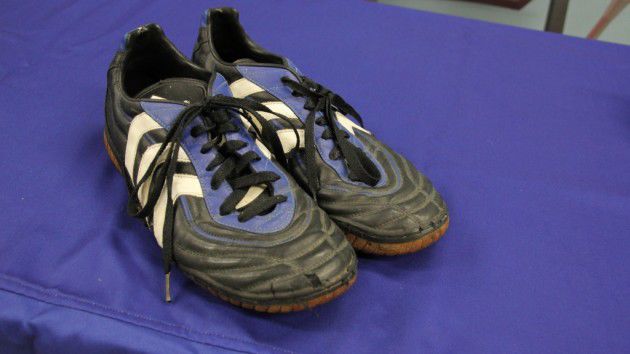Villanovans get a glimpse into the lives of refugees
September 20, 2016
Did you know Albert Einstein was a refugee? Me neither, until I was sitting in the office of Michele Pistone, Professor of Law and Director of Villanova’s Clinic for Asylum, Refugee, and Emigrant Services (CARES), when I spotted a poster on the wall depicting the German physicist under a bold statement: “A bundle of belongings isn’t the only thing a refugee brings to his new country.” By challenging preconceived notions about refugees, this quotation captures everything Pistone works for at the University’s Law School and beyond: to shine light onto the refugee story, raise awareness of the challenges they face and provide legal services to those seeking asylum in the United States.
Enthusiastically sticking to her mission, Pistone partnered with Catholic Relief Services (CRS) to organize and host an event titled “Who Are Refugees?” Tuesday night in Falvey Memorial Library, bringing the refugee to the forefront of discussion with a variety of guest speakers, several of whom were refugees themselves.
Pistone purposely held the event on Tuesday night because it was the day after the General Assembly of the United Nations met in New York City for a summit focused on addressing large movements of refugees and migrants, aiming to unite countries behind a more humane and organized approach to the issue. By hosting the speakers on this day, Pistone brought the national conversation right to campus.
Over 100 students, faculty and visitors packed in the Idea Accelerator for the discussion. The night began with a TedTalk given by Alexander Betts, a Professor of Forced Migration and International Affairs at the University of Oxford. In his talk, Betts proposed solutions to the failing refugee system, one that currently promotes more dangerous means for refugees to reach the United States.
After Betts, Pistone made remarks framing his talk in the contact of law in the United States and how it impacts our world. But the “highlight” of the night, to Pistone, was what followed her commentary: a panel of four refugees, each there to share their story.
Tears, trials, triumphs and tattered sneakers—all mark the unique stories of each refugee’s journey to America. Luis Canales, for example, fled Honduras to escape gang violence and search for security. Amidst the unreliable transportation methods between countries, much of his journey was spent walking. He held up the Adidas sneakers he wore as we walked, deeming them the symbols that “brought him to safety.” Canales is now a third year law student at Villanova, fulfilling his dream of providing legal services to those experiencing hardships he so intimately relates to.
The event concluded with a question of “what next?” as CRS provided participants with a list of tangible items they can do to express their support in refugees, such as signing petitions supporting letters to the President urging immigration reform.
A great energy and enthusiasm came with the students as they approached the CRS table on their way of the Idea Accelerator.
“Events like this really make me realize how much of a global effect our work has,” sophomore CRS ambassador Jamilah Jones said. “One person has the ability to make an impact, and I think that’s a huge takeaway.”
While the event ended on a successful note, Pistone’s work is not close to done. In fact, this event was one of many that CARES has sponsored on campus since Pistone founded the clinic 17 years ago, a major source of change right here at the University.
Students participating in CARES are enrolled in a semester long clinic in which they work in teams of two to take on real-life cases advocating for the rights of asylum seekers in the Philadelphia area.
Since its origins, CARES continues to profoundly impact both its clients and its students. According to Pistone, the clinic has won asylum for about 90 percent of their cases. Moreover, Pistone believes the course transforms students by providing the opportunity for them to engage in real and meaningful work.
“It’s very different when you’re working in a clinic on behalf of a client, where the purpose of your work is outside of yourself,” Pistone said. “So many students focus on getting a good grade or getting a higher rank or something that is very focused on their own achievement, but when they walk into this setting they take on someone else and the purpose of their work becomes that other person.”
Upon leaving Pistone’s office, after saluting Einstein one last time, I caught two of her students in the clinic working diligently on their case.
Maria Salvemini and Aya Samra are both third-year law students. Taking a few minutes from their preliminary research to speak with me—they were only enrolled in the clinic for three weeks—both expressed their excitement on diving into such impactful work outside of the classroom.
“It really puts things into perspective for us,” Samra said. “We may take things for granted, and then you meet with someone who has gone through so much to get here, and they need simple things—like getting a job and having the proper paper work or ensuring that their child is safe in the United States or not worrying about being deported. It’s a very humbling experience to say the least.”












